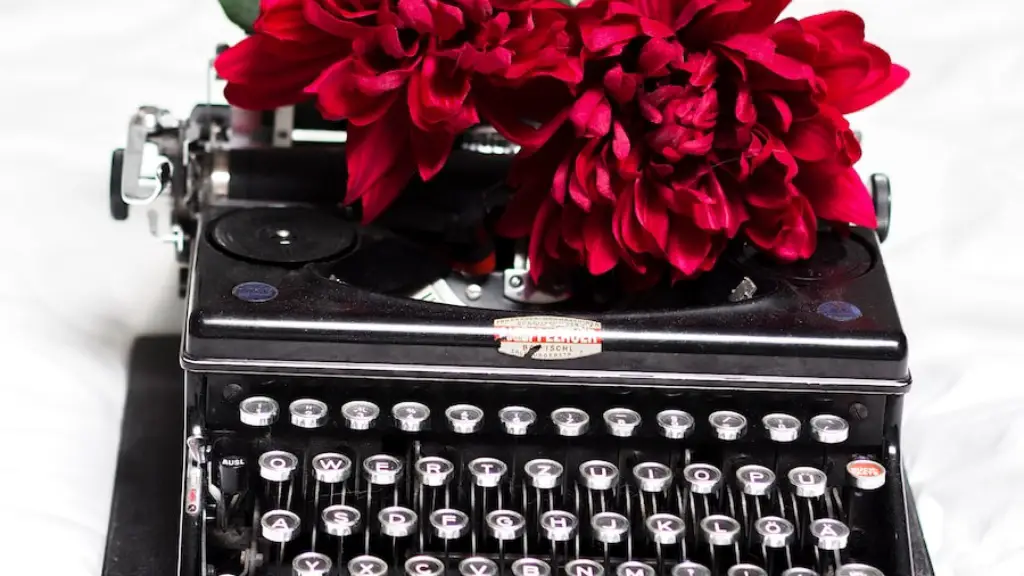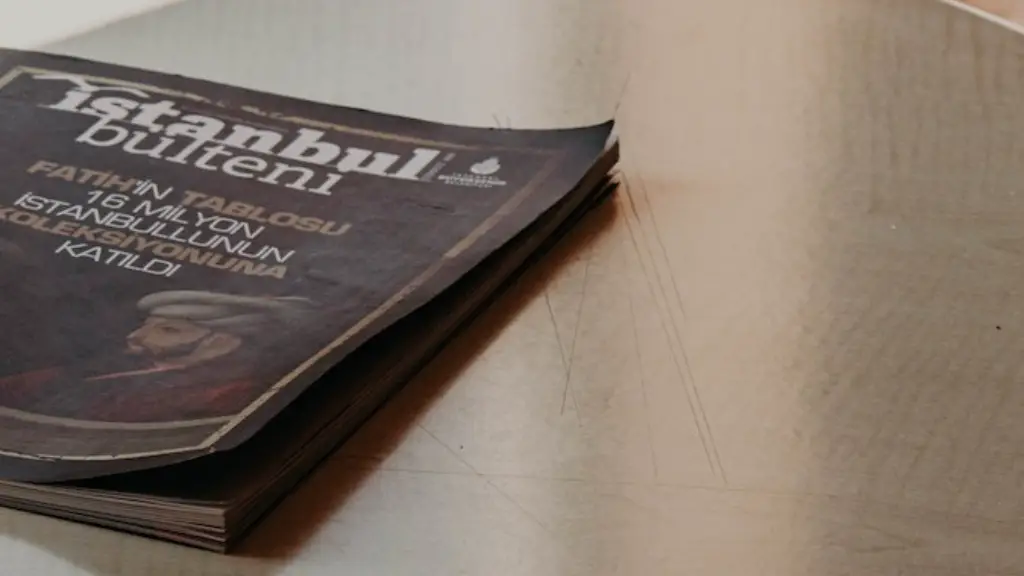Introduction
Never has there been a more exciting time for poets looking to get their work published in the UK. Traditional publishers are competing for attention with a growing array of independent voices and there are numerous opportunities to self-publish. As a poet, getting your work out there to be read and appreciated can be a daunting prospect.
This article will provide an overview of the different routes you can take to get your poetry published in the UK. It will cover the advantages and disadvantages of traditional and self-publishing, and provide guidance on how to approach a publishing house. Lastly, it will provide advice on how to submit your work to magazines and competitions.
Understanding Different Types of Publishers
Traditional publishing houses are a major route to publication in the UK; they accept submissions from emerging writers, and offer access to a wider range of readers and opportunities. Working with a publisher can also provide support and financial reward. On the other hand, self-publishing offers greater freedom, but may lack the reach of a traditional publisher.
When submitting your work to a publishing house, it is important to ensure your submission is tailored to the publisher’s tastes. Conducting research into the type of books they release will give you an insight into their interests and help you target your work more effectively.
Submission Standards and Formatting
Once you have found a receptive publisher, you will need to prepare your submission according to their stated guidelines. All publishers require you to submit your work electronically, in a specific file format. Generally, it is preferable to submit your poetry as a PDF or Word document, using pages of A4.
In terms of style and formatting, ensure your document is neat and legible – use simple fonts, without excessive symbols or fancy styling. As well as the poems themselves, be sure to include a cover letter that outlines why you believe your work is suitable for the publication, and why you feel it will be of interest to the publisher and to their readers.
Magazines and Competitions
If you are struggling to make the initial contact with a publisher, you could consider submitting your work to a magazine or entering a poetry competition. This may be more intimidating as you may be self-promoting and competing against dozens or even hundreds of other entrants, but it can be a great way of getting your work noticed and gathering feedback.
Most magazines will welcome submissions from those with or without an established publishing background, and those with existing relationships with the magazine. Check the magazine’s stated submission guidelines, and check whether they prefer snail mail or electronic submission. Additionally, when entering competitions, check out the judging criteria – many competitions are judged according to specific technical criteria and originality.
If submitting your work to a magazine or competition make sure you keep note of the date and results. Keep track of updates and use this information to help make decisions about future submissions.
Marketing Strategies
Marketing techniques such as using social media and engaging in local events can really help to boost your poetry career. Where possible, try to find exciting ways of showcasing your work that offer a platform for discussion – this could involve reading your work aloud at a bookshop or local event, or through social media groups. Building a following can be an effective way of getting your work noticed and generating interest in your work.
This is an opportunity to develop an online presence and to create a network of fellow poets and poet-lovers. Keep abreast of the latest developments and be creative in how you showcase your work. Make your work available in various formats, sharing it on various platforms, such as Youtube, and create a ‘sign-up’ list on your website.
Publication Agreements
Before signing a publication agreement with a publisher, ensure you familiarise yourself with the terms of the agreement. Pay special attention to the copyright agreement and any restrictions on the use of the material in future works. It is also important to be aware of the potential pitfalls – such as an unrepeatable agreement or an agreement that requires you to remain as the author of the work.
Be sure to read the small print and consider whether the agreement is fair. Ultimately, you should be comfortable with the terms and be sure that the publisher will support and respect the rights of the author, as well as offering financial remuneration.
Conclusion and Self-Promotion
Once you have completed the publishing process, it is important to start promoting your work – as it is only during this stage that your work will start to earn money. Make sure you track the progress of your work, monitor the sales and plan promotional campaigns where appropriate.
Overall, the best advice when looking to get your poetry published in the UK is to plan ahead. Research your target publication, get familiar with the submission guidelines and familiarise yourself with the publication agreement. Take advantage of opportunities such as competitions and society readings, and keep abreast of new developments. With the correct planning and preparation, getting your work published can be an incredibly rewarding process.
Internet Services for Poets
The internet has been a boon for aspiring poets; a simple search for ‘poetry publishers’ will reveal a vast number of websites filled with information and advice. Additionally, many organisations and websites offer opportunities to submit your work for appraisal and feedback.
Online services such as Poetry Nation are a great way of connecting with fellow writers, discussing ideas and exploring opportunities. Communities such as this are a great way to stay motivated, get feedback on your work and potentially connect with publishers or agents.
Social media also provides plenty of opportunities for poets to showcase their work. Platforms such as Twitter, Instagram and Pinterest are great for sharing videos and photographs of your poetry, constructing dialogue and debating topics with fellow poets. Facebook, meanwhile, allows you to create communities and join groups that relate to your interests.
Blog and Website Promotion
Creating a blog or website is another useful way of gaining exposure. Make sure your site looks professional and contains useful information, such as an Upcoming Events section or a list of your previous works. Use these websites to post new works and engage with readers through comments and debates. Additionally, make sure you include an About Me section – this section will give readers an insight into your creative vision and inject a personal touch into your work.
You can also leverage your online presence to network with publishers, publicists and organisations. Additionally, consider making use of networking websites, such as LinkedIn, and creating business cards – this will give your work further reach and provide potential readers with more information about you and your work.
Choosing The Right Platform
Different platform offers their own advantages and disadvantages when it comes to getting your poetry published in the UK. Ultimately, it is up to the poet to decide which route is best for them and which platform is the most accessible. Traditional outlets provide prestige and access to wider readership, whereas self-publishing allows for greater freedom and artistic control. It is important to take time and consider which platform best suits your goals, and then make an informed decision.
One final point, regardless of the platform you choose, is to be consistent. Regularly submitting your work and staying engaged with the literary community will be invaluable when it comes to getting your work published.





